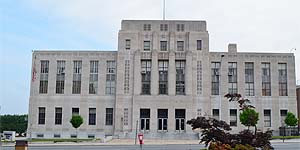When a business has trouble paying its bills, the optimistic view is that it is having a cash flow problem. The other possibility is that it is a profitability problem. The apocryphal brothers who bought a truck and bought apples in the country for five cents, which they sold in the city for four cents would not have been saved by a better credit line any more than they would have been saved by a bigger truck. Of course there might be this ship coming in that will solve the profitability problem, if you can only hang on long enough.
One of the ways to buy time is “managing payables”. In its extreme form you only pay bills to vendors who are capable of and prone to exacting immediate revenge like shutting off the lights. When operating in this mode there is a great temptation to not deposit payroll withholding. The first time you do it, you might be surprised that a black helicopter does not drop off a team of IRS commandos who start pillaging your office supplies. Actually you can probably get away with it for quite a while while waiting for that ship to come in.
Nonetheless, it is a very bad idea, because if the ship does not make it, you are really screwed. If you are determined to be a responsible person, the IRS can get the withholding from you personally. You don’t have to have been an owner of the business.
This recent case in the US District Court Middle District North Carolina shows how bad it can get for the “payables managers” even when it is somebody else’s payables that they are managing. Buddy Light Accounting & Tax Services was paying bills and managing payroll, including filing Form 941 for GC Affordable Dining, Inc. Buddy Light Accounting & Tax Services was owned by the Light Brothers (Barry and Buddy). For purposes of making payroll tax deposits they had the ability to complete electronic transfers from GCAD’s accounts to the IRS.
According to this story about a related case GCAD was formed to operate five Golden Corral restaurants. Problems developed and started in 1998 several quarters of payroll withholding went totally or partially unpaid. Apparently the Light brothers has significant discretion over who was or was not getting paid:
In the present case, it is undisputed that not only did the Light Brothers know that GCAD owed federal withholding taxes during the time period in question, they were the first to know that information. It is also undisputed that even though the Light Brothers knew that GCAD did not have sufficient funds to pay the payroll, the vendors and creditors, and the withholding taxes owed, and they knew that federal withholding taxes were due and owing, the Light Brothers issued thousands of checks to GCAD employees, including checks to Buddy Light Accounting, to various GCAD vendors and creditors, including checks for utilities, rent, and food services, and to Pintner, Erwin, and Coggin at their request. The Light Brothers knew that the money issued through these checks could have been used to satisfy the amounts owed to the United States in unpaid federal withholding taxes. Therefore, by issuing checks to persons and entities other than the IRS, during a time when the Light Brothers knew that GCAD owed withholding taxes, the Light Brothers intentionally preferred other creditors over the United States.
It is interesting to note that the plaintiff in this case is Charles Erwin, one of the owners, who was found to be a responsible person in another decision. Presumably, this decision will spread the pain a around a bit. You really have to wonder what the Light brothers were thinking.
You can follow me on twitter @peterreillycpa.
Originally published on Forbes.com Feb 26th, 2013































































































